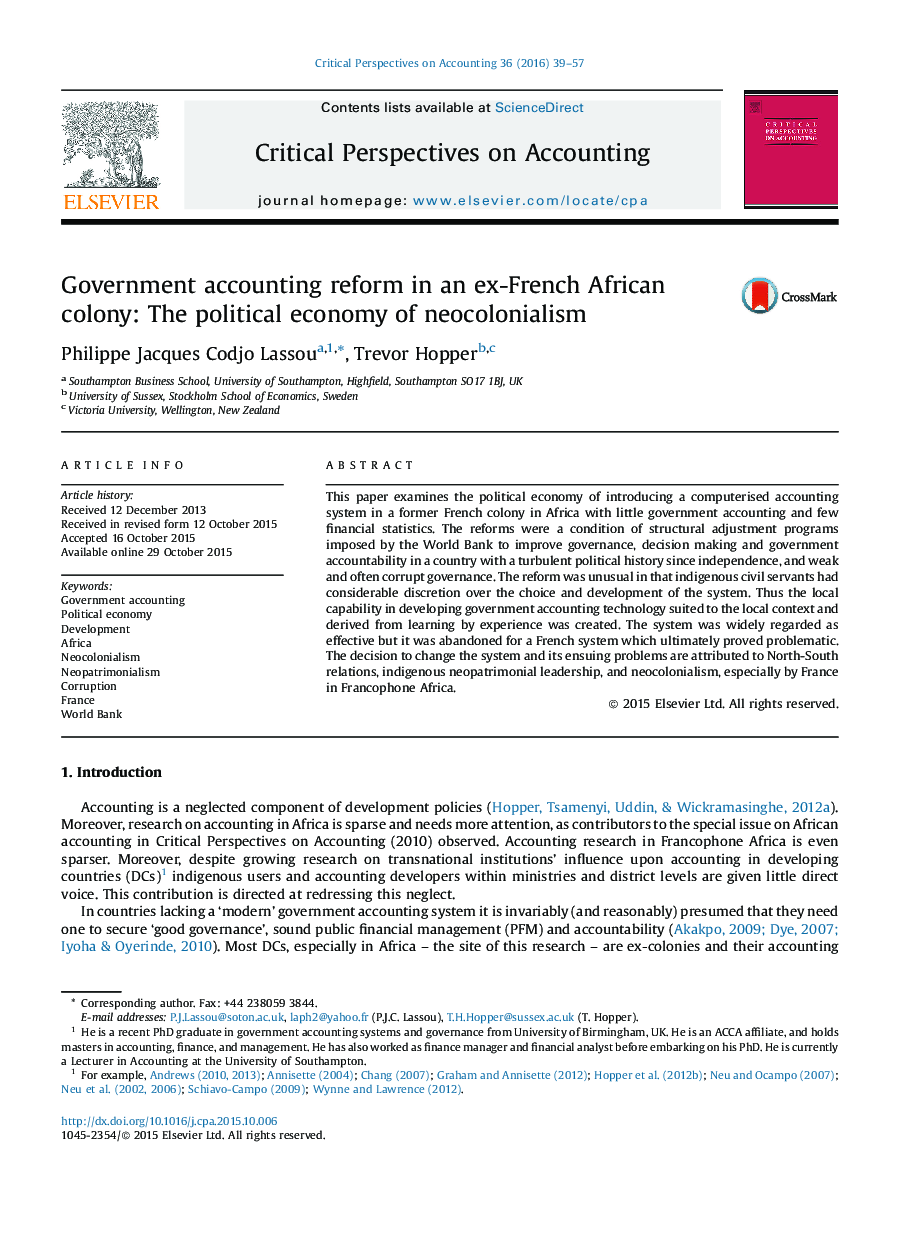| Article ID | Journal | Published Year | Pages | File Type |
|---|---|---|---|---|
| 1000763 | Critical Perspectives on Accounting | 2016 | 19 Pages |
This paper examines the political economy of introducing a computerised accounting system in a former French colony in Africa with little government accounting and few financial statistics. The reforms were a condition of structural adjustment programs imposed by the World Bank to improve governance, decision making and government accountability in a country with a turbulent political history since independence, and weak and often corrupt governance. The reform was unusual in that indigenous civil servants had considerable discretion over the choice and development of the system. Thus the local capability in developing government accounting technology suited to the local context and derived from learning by experience was created. The system was widely regarded as effective but it was abandoned for a French system which ultimately proved problematic. The decision to change the system and its ensuing problems are attributed to North-South relations, indigenous neopatrimonial leadership, and neocolonialism, especially by France in Francophone Africa.
